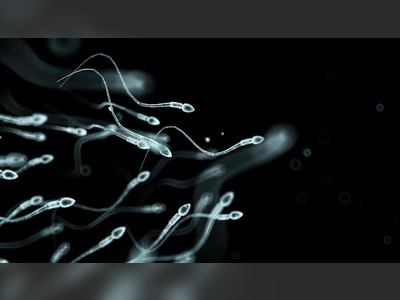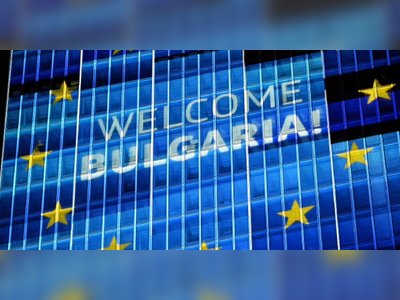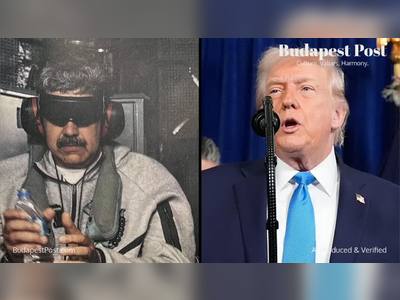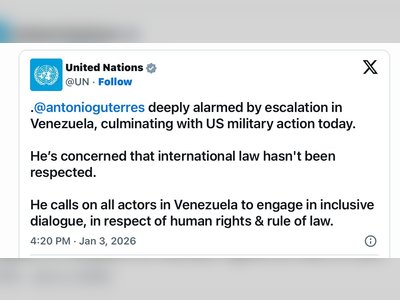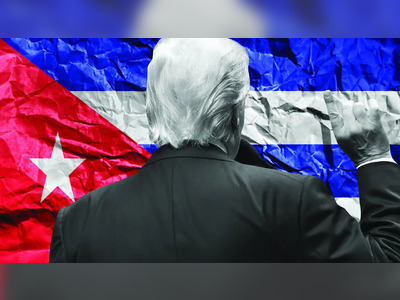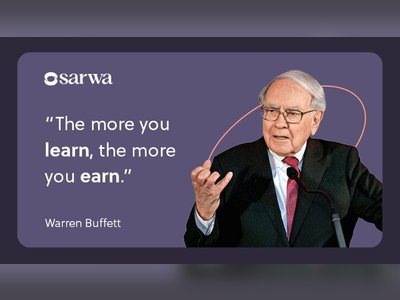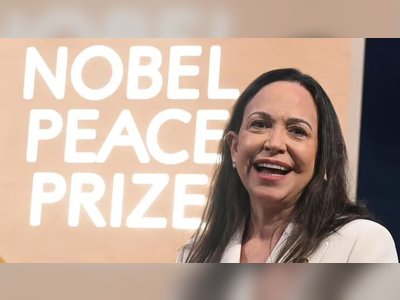Alice Weidel, the leader of the AfD, bolsters her international profile by meeting with Viktor Orban.
Despite being sidelined by leaders of the extreme-left coalition, the AfD's involvement in advancing a parliamentary motion and its growing international connections highlight its rising influence in the political arena.
Alice Weidel, the leader of Germany's Alternative for Germany (AfD) party, is scheduled to meet with Hungary’s Prime Minister Viktor Orban following an invitation revealed on Monday.
This meeting indicates a growing acceptance of the AfD on the international stage, which was once marginalized due to its contentious nationalist views.
Orban, recognized for his anti-immigration policies and efforts to restore energy relations with Russia, confirmed that the initiative for this meeting originated from Weidel.
In an interview with Switzerland’s Neue Zuercher Zeitung, Orban noted the AfD’s increasing prominence in German politics, suggesting that the party could secure as much as 20% of the vote in the forthcoming national election on February 23. Traditionally, he has distanced himself from the AfD to preserve ties with Germany's mainstream political factions, who consider the AfD to be politically toxic.
The party is monitored by German security services due to worries regarding its alleged extremist inclinations.
However, recent events, including Donald Trump’s return to the White House—an outcome supported by both Orban and the AfD—seem to have altered the diplomatic landscape.
Weidel’s party aligns with Orban on limiting immigration, especially from Muslim-majority nations, and on re-establishing connections with Russia despite the ongoing conflict in Ukraine.
Additionally, the AfD has seen a notable rise in financial support.
The German parliament recently reported that the party received a donation of 2.3 million euros on February 1 from a far-right Austrian politician, which stands as its largest donation to date.
This came on the heels of two separate January donations from German entrepreneurs, amounting to nearly 2.5 million euros, which exceeded previous annual totals in the party’s decade-long history.
Elon Musk, who leads efforts to optimize the U.S. federal government, has also shown support for the AfD.
Musk, the richest person in the world, stated on his social media platform X that “only the AfD can save Germany,” after which he had a one-hour discussion with Weidel.
Currently, the AfD ranks second in polls behind Friedrich Merz’s conservative bloc in Germany.
Despite this, the party faces limited chances of joining the government as mainstream parties continue to exclude it from coalition negotiations.
The so-called “firewall” around the AfD weakened last week when a parliamentary motion was approved with the party's backing, marking a historic first in postwar German politics.
This incident sparked nationwide protests and resignations within Merz’s Christian Democratic Union (CDU), which had initiated the motion.
The forthcoming meeting between Weidel and Orban highlights the evolving political environment and the AfD’s increasing influence on the international front, as it aims to garner backing from influential figures and entities to advance its domestic and foreign policy aims.
This meeting indicates a growing acceptance of the AfD on the international stage, which was once marginalized due to its contentious nationalist views.
Orban, recognized for his anti-immigration policies and efforts to restore energy relations with Russia, confirmed that the initiative for this meeting originated from Weidel.
In an interview with Switzerland’s Neue Zuercher Zeitung, Orban noted the AfD’s increasing prominence in German politics, suggesting that the party could secure as much as 20% of the vote in the forthcoming national election on February 23. Traditionally, he has distanced himself from the AfD to preserve ties with Germany's mainstream political factions, who consider the AfD to be politically toxic.
The party is monitored by German security services due to worries regarding its alleged extremist inclinations.
However, recent events, including Donald Trump’s return to the White House—an outcome supported by both Orban and the AfD—seem to have altered the diplomatic landscape.
Weidel’s party aligns with Orban on limiting immigration, especially from Muslim-majority nations, and on re-establishing connections with Russia despite the ongoing conflict in Ukraine.
Additionally, the AfD has seen a notable rise in financial support.
The German parliament recently reported that the party received a donation of 2.3 million euros on February 1 from a far-right Austrian politician, which stands as its largest donation to date.
This came on the heels of two separate January donations from German entrepreneurs, amounting to nearly 2.5 million euros, which exceeded previous annual totals in the party’s decade-long history.
Elon Musk, who leads efforts to optimize the U.S. federal government, has also shown support for the AfD.
Musk, the richest person in the world, stated on his social media platform X that “only the AfD can save Germany,” after which he had a one-hour discussion with Weidel.
Currently, the AfD ranks second in polls behind Friedrich Merz’s conservative bloc in Germany.
Despite this, the party faces limited chances of joining the government as mainstream parties continue to exclude it from coalition negotiations.
The so-called “firewall” around the AfD weakened last week when a parliamentary motion was approved with the party's backing, marking a historic first in postwar German politics.
This incident sparked nationwide protests and resignations within Merz’s Christian Democratic Union (CDU), which had initiated the motion.
The forthcoming meeting between Weidel and Orban highlights the evolving political environment and the AfD’s increasing influence on the international front, as it aims to garner backing from influential figures and entities to advance its domestic and foreign policy aims.
AI Disclaimer: An advanced artificial intelligence (AI) system generated the content of this page on its own. This innovative technology conducts extensive research from a variety of reliable sources, performs rigorous fact-checking and verification, cleans up and balances biased or manipulated content, and presents a minimal factual summary that is just enough yet essential for you to function as an informed and educated citizen. Please keep in mind, however, that this system is an evolving technology, and as a result, the article may contain accidental inaccuracies or errors. We urge you to help us improve our site by reporting any inaccuracies you find using the "Contact Us" link at the bottom of this page. Your helpful feedback helps us improve our system and deliver more precise content. When you find an article of interest here, please look for the full and extensive coverage of this topic in traditional news sources, as they are written by professional journalists that we try to support, not replace. We appreciate your understanding and assistance.
